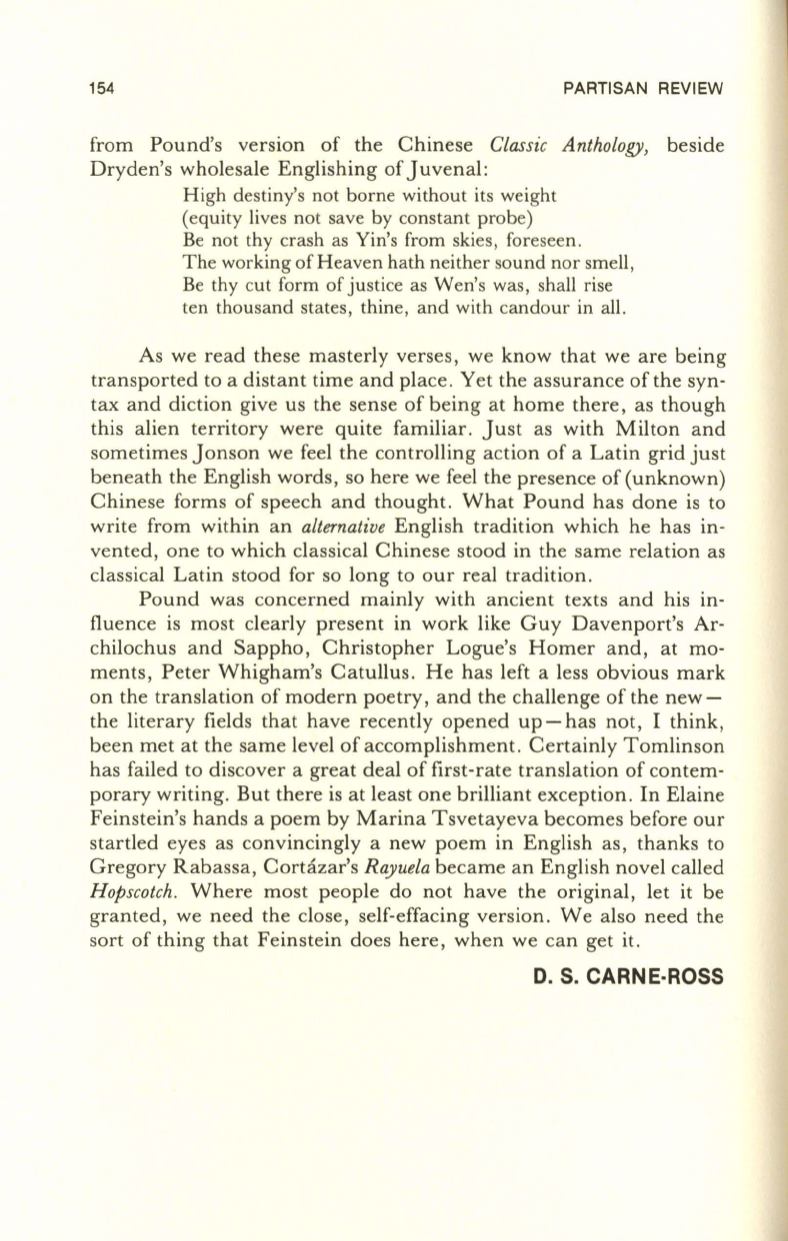
154
PARTISAN REVIEW
from Pound's version of the Chinese
Classic Anthology,
beside
Dryden's wholesale Englishing of Juvenal:
High destiny's not borne without its weight
(equity lives not save by constant probe)
Be not thy crash as Yin's from skies, foreseen .
The working of Heaven hath neither sound nor smell,
Be thy cut form of justice as Wen's was, shall rise
ten thousand states, thine , and with candour in all.
As we read these masterly verses, we know that we are being
transported to a distant time and place. Yet the assurance of the syn–
tax and diction give us the sense of being at home there, as though
this alien territory were quite familiar. Just as with Milton and
sometimes Jonson we feel the controlling action of a Latin grid just
beneath the English words, so here we feel the presence of (unknown)
Chinese forms of speech and thought. What Pound has done is to
write from within an
alternative
English tradition which he has in–
vented, one to which classical Chinese stood in the same relation as
classical Latin stood for so long to our real tradition .
Pound was concerned mainly with ancient texts and his in–
fluence is most clearly present in work like Guy Davenport's Ar–
chilochus and Sappho, Christopher Logue's Homer and, at mo–
ments, Peter Whigham's Catullus. He has left a less obvious mark
on the translation of modern poetry, and the challenge of the new–
the literary fields that have recently opened up - has not, I think,
been met at the same level of accomplishment. Certainly Tomlinson
has failed to discover a great deal of first-rate translation of contem–
porary writing. But there is at least one brilliant exception. In Elaine
Feinstein's hands a poem by Marina Tsvetayeva becomes before our
startled eyes as convincingly a new poem in English as, thanks to
Gregory Rabassa, Cortazar's
Rayuela
became an English novel called
Hopscotch.
Where most people do not have the original, let it be
granted, we need the close, self-effacing version. We also need the
sort of thing that Feinstein does here, when we can get it.
D. S. CARNE·ROSS


